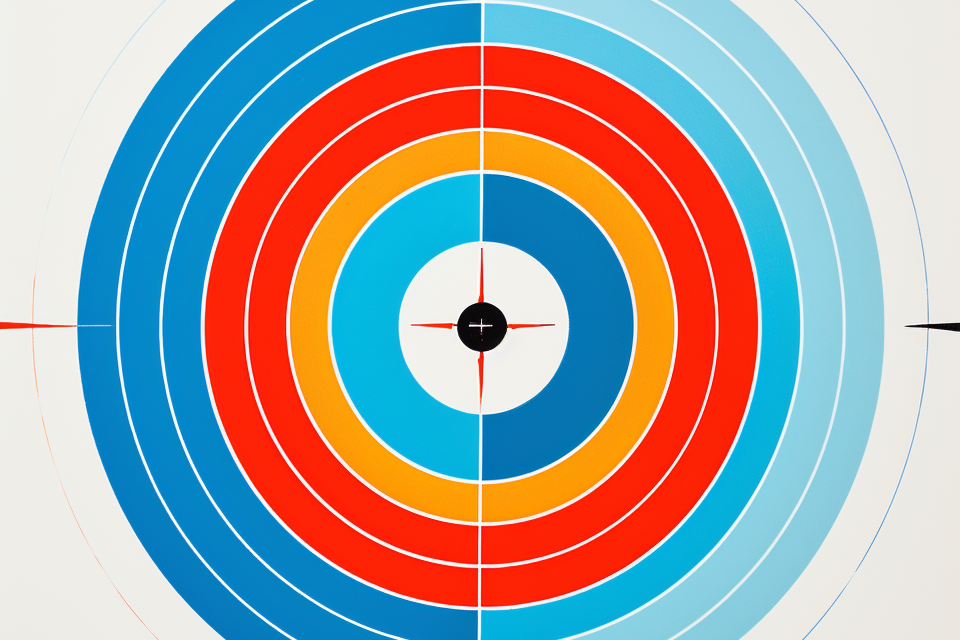Setting Objectives for a Balanced and Fulfilling Life

Setting objectives is like charting a course for your life’s journey. You have to know your destination and plan how to get there. But first, decide which destinations truly matter. Goals are diverse, covering various aspects of life, from physical health to spirituality. By setting goals across these dimensions, you’re not just targeting achievement but also crafting a balanced, fulfilling life.
The Importance of Balance in Goal-Setting
Think of your life as a complex ecosystem. Each component serves a unique purpose. Physical wellness is the soil, relationships are the air, emotional well-being is the water, and your career and finances are the flora and fauna. Personal development, leisure, and spirituality are like the sun, moon, and seasons—elements that enrich the whole. Focusing solely on one or two areas is like expecting a forest to thrive with just water and soil; it limits what could be a vibrant, dynamic habitat.
So, why is balance so vital? Setting goals across life’s domains creates a synergy. Progress in one area can ripple into growth in others, much like a harmonious orchestra where each instrument contributes to a beautiful melody. For instance, emotional stability can enhance your focus at work, leading to financial security, which then allows you to explore personal development or leisure, and so on.
The key takeaway? A balanced life isn’t about perfection; it’s about coordinating diverse elements to form a harmonious whole. Goals that touch on multiple life aspects are stepping stones to not just success, but a rich and fulfilling existence. As you delve into each area, you’ll acquire the techniques and insights for setting and achieving meaningful goals. So, ready your metaphorical compass, and let’s embark on this comprehensive journey to craft goals that consider your entire life.
Key Areas in Life to Set Goals
Below you will find the top areas in life to set goals, along with examples of goals you could set.
-
Personal Development
- Self-Awareness: Journaling, mindfulness practices
- Goal-Setting: SMART goals, vision boards
- Time Management: Pomodoro Technique, Eisenhower Box
-
Career and Professional Growth
- Networking: Industry events, LinkedIn
- Skills Development: Online courses, job rotation
- Job Satisfaction: Work-life balance, meaningful projects
-
Health and Fitness
- Nutrition: Balanced diet, meal prepping
- Exercise: Cardio, strength training
- Mental Health: Stress management, therapy
-
Relationships
- Communication: Active listening, conflict resolution
- Intimacy: Emotional connection, quality time
- Boundaries: Saying no, defining personal space
-
Financial Stability
- Budgeting: Expense tracking, saving goals
- Investing: Stocks, real estate
- Debt Management: Consolidation, repayment plans
-
Leisure and Recreation
- Hobbies: Painting, writing, sports
- Travel: Adventure trips, cultural immersion
- Relaxation: Meditation, unplugging from technology
-
Education and Learning
- Continued Learning: Webinars, podcasts
- Critical Thinking: Debate, problem-solving exercises
- Creativity: Brainstorming sessions, arts and crafts
-
Community and Social Impact
- Volunteering: Local shelters, community events
- Activism: Social justice causes, environmental stewardship
- Collaboration: Neighborhood watch, community gardens
Setting Health Goals for a Balanced Life
When it comes to your life’s tapestry, physical health is the foundational thread. It sustains everything else, from emotional wellness to professional success. Poor physical health can become a stumbling block, hindering your potential in other life facets.
The Importance of SMART Goals
Setting health goals should transcend fleeting New Year’s resolutions. Opt for SMART goals: Specific, Measurable, Achievable, Relevant, and Time-bound. For instance, instead of saying, “I want to get fit,” specify “I will lose 20 pounds in 4 months by exercising four times a week and eliminating sugary snacks.” This goal is well-defined, measurable, and time-bound.
Maintaining Momentum and Monitoring Progress
However, choosing a goal is just the beginning; maintaining momentum is crucial. Consistency is your ally. Tactics like setting mini-goals and celebrating small wins can boost your motivation. Monitoring your progress isn’t just about weight checks; it can also involve tracking stamina or strength metrics. Tools like fitness apps can facilitate this while offering valuable insights.
Investing in Long-Term Physical Health
Ultimately, your physical health is a long-term investment that enriches every aspect of your life. By adopting SMART objectives and keeping an eye on your progress, you’re not just sculpting your physique—you’re laying the groundwork for a well-balanced, meaningful life. Each stride you take, whether in running or meal prepping, is a step toward a healthier, more empowered you.
Nurturing Emotional Well-Being Through Goal-Setting
Emotional well-being is often the quiet undercurrent shaping your daily life. It influences your judgment and focus. Beyond avoiding stress or sadness, it encompasses resilience and emotional agility needed to navigate life’s complexities.
Setting Goals for Emotional Health
Goal-setting isn’t exclusive to external achievements; it can positively impact your emotional landscape. Setting specific emotional health goals can guide your actions and thoughts toward a balanced state, dispelling feelings of aimlessness often tied to emotional lows.
Types of Emotional Health Goals
What types of goals can benefit your emotional well-being? These might range from daily mindfulness practices to weekly self-reflection. Behavioral goals could include stress management techniques. For instance, if work stress seeps into your personal life, a goal might be to establish a post-work decompression routine.
Cultivating Emotional Resilience
To develop emotional resilience, think of it as filling an emotional toolbox. Start by identifying your emotional triggers. Next, cultivate a support network—emotional health isn’t a solo endeavor. Incorporate mindfulness activities; these quiet moments of focus can yield emotional insights vital for personal growth. Lastly, be patient and gentle with yourself. Emotional growth is a winding road, full of highs and lows.
The Significance of Emotional Well-Being
Your emotional health isn’t just a sidebar to your life story; it’s a central chapter. By setting strategic goals and nurturing emotional resilience, you prepare yourself for a life that’s not only successful but emotionally rich and rewarding. Emotional well-being is a continual process of becoming—becoming more self-aware, balanced, and harmoniously tuned into your emotional landscape.
Building Healthy and Fulfilling Relationships
Relationships are the threads that not only add color but also hold the fabric together in the intricate tapestry of life. Like a support beam in a building, they act as emotional scaffolding for your well-being, bringing you joy, emotional sustenance, nudging you to grow, and imparting a sense of belonging. Given their foundational role, investing in healthy relationships is tantamount to investing in a higher quality of life.
Defining Relationship Goals
So, what goals surface when you ponder your relationships, be they family, romantic, platonic, or professional? Maybe you aim to sharpen your communication skills or deepen your emotional bonds. Perhaps you want to broaden your social circle or mend a fractured relationship. Whatever these goals are, clarity is key. Vague ambitions like “be a better partner” won’t cut it. Aim for specifics, such as, “I will dedicate time each week for an honest conversation with my partner about our feelings and concerns.”
Taking Action and Cultivating Relational Rituals
After defining your relationship goals, it’s time for action. This could mean regular catch-ups with your partner, committing to a weekly family dinner, or setting boundaries for work-life balance. In professional settings, your aims might focus on boosting team collaboration, refining your networking skills, or forging mentorships. The point is to act deliberately, not just react. Consider these actions relational rituals—consistent practices that fortify bonds over time.
Balancing Personal Growth and Relationships
But remember this: while relationships are invaluable, they shouldn’t overshadow personal growth. It’s easy to get so caught up in others that you lose yourself. Balance is key. Some self-improvement goals might even dovetail with relationship aims. Mastering stress management, for instance, makes you a more centered individual, enriching your relationships. Life might also require you to tilt the scales towards personal or professional growth at times, and that’s perfectly okay. The endgame is a balanced life that accommodates both interpersonal enhancement and personal growth.
The Power of Relationships in a Balanced Life
In the grand scheme, relationships serve as both mirrors and windows. They reflect your emotional state while offering glimpses into the emotional realms of others. Cultivating these bonds through well-defined goals not only elevates your emotional well-being but enhances your overall life quality. As you set your relationship goals, remember you’re not just deepening ties with others; you’re also laying down a more balanced, fulfilling path for yourself.
Navigating Your Professional Journey Through Goal-Setting
If your career were a ship, goals would serve as its compass, steering you toward professional harbors that align with both your skills and passions. Setting work-related goals isn’t just ticking off a list of achievements; it’s a path of evolution that helps you grow both outwardly and inwardly, touching upon what truly resonates with you.
The Art of Setting Career Goals
The art of setting career goals starts with timing: short-term and long-term. Short-term goals function as stepping stones, offering immediate direction and usually attainable within a year—like mastering a new software or signing up for a public speaking course. Long-term objectives, conversely, are your guiding star. These could range from ascending to department head to becoming an industry thought leader. The trick is to ensure your short-term milestones feed into your long-term vision, creating a virtuous cycle of growth.
Aligning Goals with Values
Yet, in the sprint to scale the corporate heights or freelance ladders, people often chase goals misaligned with their values, leading to emptiness despite successes. The golden rule? Alignment. For instance, if you cherish family life, a goal requiring excessive travel may not suit you, lucrative as it may seem. If social impact matters to you, aim for roles in corporate social responsibility or non-profits. Such alignment makes each stride feel less like a sacrifice and more like a meaningful journey.
Adapting Goals to Career Transitions
So what about the inevitable twists and turns in your career? Industries evolve, life moves, and priorities shift. Planned or unplanned, these transitions are integral to your professional journey. Adapt your goals to these shifts rather than viewing them as roadblocks. If you’re shifting from a 9-to-5 job to freelancing, refocus your goals on client acquisition and self-management. Or, if stepping into management for the first time, leadership skills should take precedence. These aren’t disruptions; they’re just the next chapters in your evolving career story.
The Role of Goals in Your Professional Voyage
In essence, your goals function as both anchor and sail in your professional voyage, grounding you in your values while propelling you forward. You’re not just building a career; you’re crafting a life by consciously selecting goals that resonate with your core beliefs and flexing with life’s curveballs.
Building a Stable and Rewarding Financial Future
Think of financial goals as the cornerstone of a fortress that represents your future. These objectives bring stability and enable you to live life by your rules. Simply put, they serve as your financial blueprint, creating the stability and lifestyle you seek.
Financial Goals: Laying a Lasting Foundation
Laying a lasting foundation involves setting goals one step at a time. Financial objectives can be sorted into short-term, medium-term, and long-term categories.
Short-Term Goals
Short-term goals, like saving for a vacation or setting up an emergency fund, are typically achievable within a year.
Medium-Term Goals
Medium-term goals stretch from one to five years and might include buying a car or making a home down payment.
Long-Term Goals
Long-term ambitions like planning for retirement or building generational wealth can take decades to realize. Balancing these types of goals is crucial for financial health.
The Importance of Budgeting and Investing
Setting a goal is one thing, but achieving it is another story. Budgeting and investing are your two pillars for effective financial planning.
Budgeting
Budgeting involves rigorous monitoring of income and expenses, identifying saving opportunities, and allocating resources to meet your aims.
Investing
Investing, on the other hand, catapults you towards your goals. Through smart investing—be it in stocks, bonds, real estate, or a side hustle—your money starts working for you, accelerating your financial ambitions.
Tools for Financial Planning
How do you know if you’re on the right track? The good news is that a plethora of tools exist today to turn even the math-phobic into adept financial planners.
Budgeting Apps
Budgeting apps can auto-categorize spending and offer real-time snapshots of your financial state.
Investment Platforms
Investment platforms can create portfolios based on your risk profile and financial goals.
Spreadsheets
And for those who prefer a more manual approach, spreadsheets remain a timeless tool for tracking finances.
Expert Financial Advisors
Expert financial advisors can also offer nuanced advice on complex issues like estate planning or tax strategies.
In a world fraught with financial uncertainties, setting robust, achievable financial goals isn’t just foresight—it’s an act of empowerment. Through careful planning, wise management, and diligent tracking, you’re claiming freedom, stability, and peace of mind.



